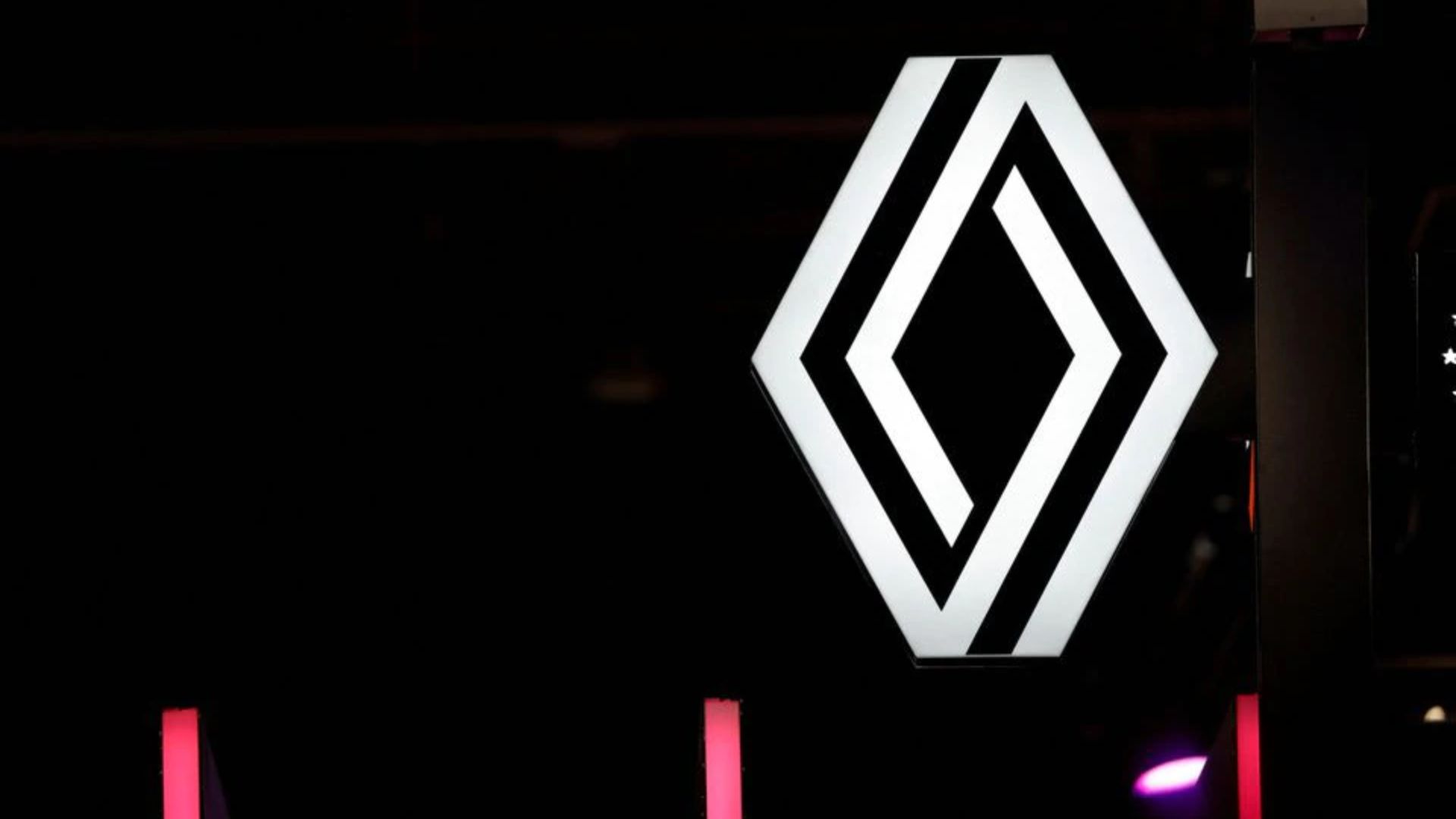PARIS, July 27 (Reuters) – Western automakers are fretting about an “invasion” of cheap Chinese electric cars in Europe, prompting France’s Renault (RENA.PA) to say on Thursday it was aiming to slash production costs for its electric models by 40%.
Finance chief Thierry Pieton said the best way to fend off price competition was for Renault to cut its own development and manufacturing costs.
While the targetted 40% reduction is from 2027 onwards, Chief Executive Luca de Meo said the group would start seeing significantly lower production costs from the second half of this year, thanks to a fall in raw material costs.
“It’s clear we are in competition and that time is of the essence, but that’s the business we are in,” he said.
Delivering affordable electric vehicles (EVs) has become a priority for car makers worldwide as the shift to cleaner driving has come with high prices, due largely to battery costs.
Chinese manufacturers such as BYD (002594.SZ) and SAIC have invested heavily in the shift, using lower labour costs and local battery suppliers to get a head start over many rivals.
In 2022, Chinese car makers had a 9% share of Europe’s EV market, nearly double the previous year’s figure, according to forecasts by consultancy Inovev. And the pace is picking up.
Like other EV makers, Renault also faces increased pressure from U.S. rival Tesla (TSLA.O), which has cut prices several times this year even as that has eaten into its margins.
As an example, Tesla this year cut U.S. prices of its Model Y long-range version by a quarter to $50,490.
That is having an impact. According to researchers Jato Dynamics, Tesla and SAIC’s MG were the biggest market share winners in Europe during the first half of this year.
‘BRUTAL’
Carlos Tavares, the CEO of Peugeot-to-Fiat carmaker Stellantis (STLAM.MI), warned on Wednesday the competition with Chinese manufacturers would be “extremely brutal”.
“Their cost competitiveness is 25% against us. We have to fight,” he said, describing the Chinese push as an “invasion”.
“We need to use our own costs to make sure that we keep on making profit with affordable prices for our middle classes.”
Tavares said Western car makers needed to use “the same weapons” as their Chinese rivals, sourcing parts in lower cost countries and striking partnerships with battery suppliers that offer the best combination of energy, cost and weight.
“It means that we need to come up with a sourcing proposal that allows us to sell those cars like the Citroën C3 at 25,000 euros or less in a profitable manner,” he said.
Once-dominant Western automakers are also striving to regain ground in China itself, the world’s largest car market, after losing share to local manufacturers.
Mercedes-Benz (MBGn.DE) said on Thursday it was sticking to its strategy and would not engage in a price war to “buy” market share in China.
Asked about Volkswagen’s (VOWG_p.DE) move to build new models with Chinese partners and potentially co-create local platforms, Mercedes CEO Ola Kaellenius said the premium carmaker was working with partners in China to adapt its technological offering to local taste.
“We are not handing the task of creating the Mercedes of the future to another OEM (manufacturer) – that task stays with us,” Kaellenius added.









